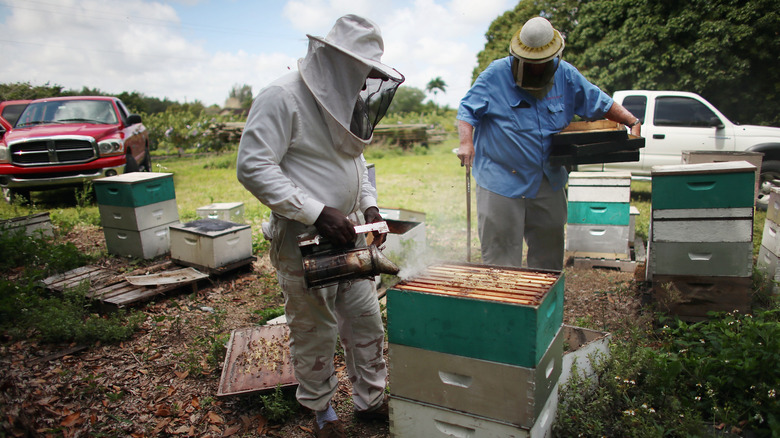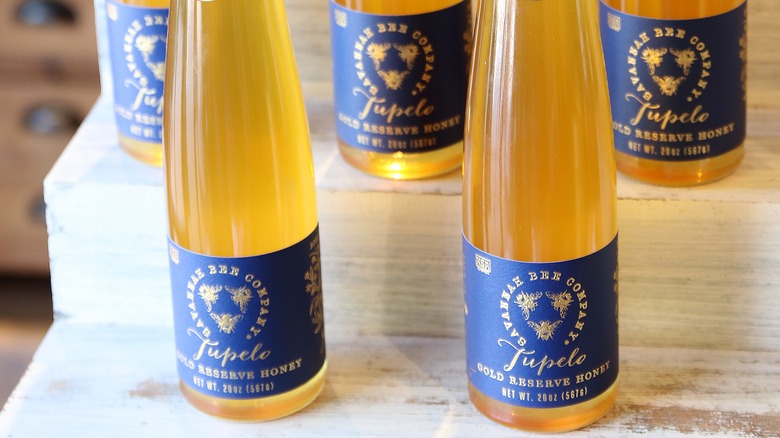The Fight To Save Tupelo Honey
Honey is a pantry staple, and has long been used in a variety of recipes, remedies, and beauty products. On top of being widely considered a beneficial food and ingredient, there are innumerable honey varieties for consumers to choose from in the U.S. alone. Among all the available varieties, Tupelo honey is one of the most popular. According to Atlas Obscura, this famous honey originates from the Southeastern U.S. and comes from bees found in highly specific wetland regions in Georgia and Florida. The two specific areas where the honey is produced are collectively known as the Southern Cypress swamp.
Fondaziones Slow Food describes the flavor of Tupelo honey as "floral" and "buttery," noting that it's often compared to cotton candy or rosewater. And while it's a favorite of many honey lovers, its availability is increasingly in peril. Today, beekeepers and scientists are working hard in the Southern Cypress swamp to keep Tupelo honey and the bees who produce it from disappearing forever.
Why is Tupelo honey threatened?
There's more than one factor leading to a decline in Tupelo honey bees, which makes dealing with the problem undoubtedly complex. Not only is the harvesting of Tupelo honey a unique and arduous task in and of itself, but environmental stressors like hurricanes, deforestation, and other issues linked to human activity and climate change have introduced new obstacles for bees and beekeepers to contend with.
Oftentimes, these troublesome factors are interconnected and causative. Take for instance the increase in mosquito populations due to warming temperatures. As the Gainesville Sun notes, chemical sprays meant to kill potentially disease-carrying mosquitoes are also known to kill honey bees indiscriminately. In states like Georgia and Florida where the population is increasing and heat, humidity, and bodies of water abound, it has become increasingly difficult to treat mosquito populations for the benefit of humans without also harming the bees that humans rely on.
That's not all. Other factors, like Tupelo honey having an extremely short harvest season and deforestation disrupting water flow to essential floodplains, complicate matters even further. Bees in the Southern Cypress swamp need a stable habitat to thrive in, and constant development of crucial forests doesn't provide that healthy landscape. It's clear that keeping Tupelo honey — and the bees that produce it — a thing of the future will require a large and sustained effort.

